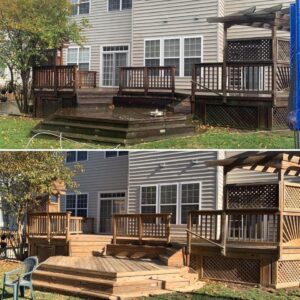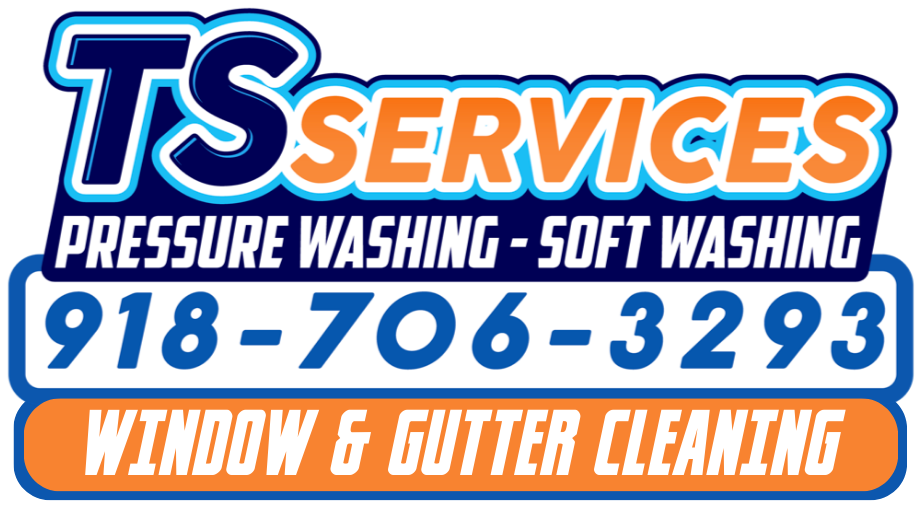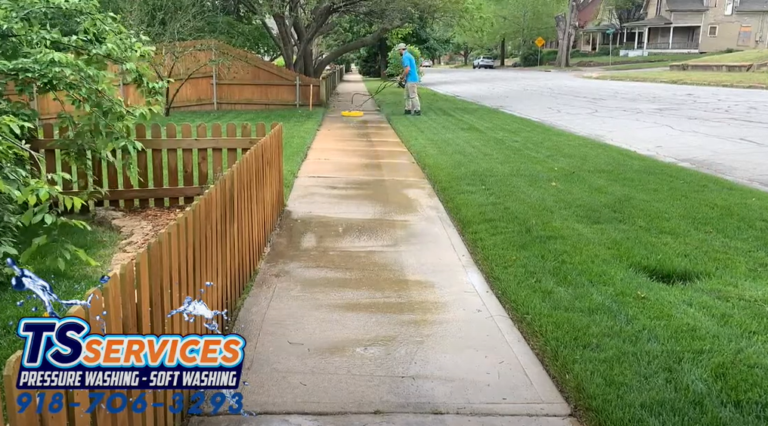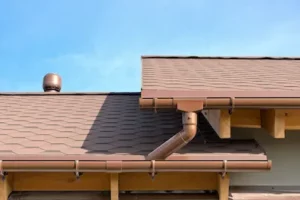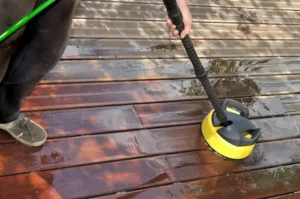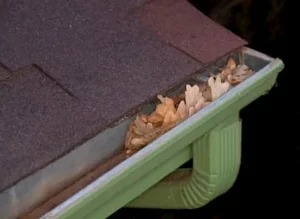10 THINGS YOU SHOULD KNOW BEFORE YOU POWER WASH ANYTHING
TS Services – Professional Exterior Cleaning is important if you want your roof to last as long as possible. Power washing is a great way to achieve a high level of cleanliness. However, before you start power washing everything you own, here are ten things you should know.
1. Power Washing and Power Washing: What’s The Difference?
A power washer is a machine that uses high-pressure water to spray grime, dust, mold, and other debris loose. A power washer does the same thing, but it also uses heat to help it obtain more effective results in some cases.
2. When to Power Wash vs. Power Washing
A power washer is often recommended for large surfaces that require heavy-duty cleaning power. Power washers are generally not used indoors, but they work great for roof cleaning in Claremore, OK and washing sidewalks, patios, and exterior building facades. Be very careful when using power washers because the added heat can damage some surfaces.
3. Different Power Washer Sizes
Power washers come in several sizes, ranging from light duty to extra-heavy or professional duty. Here’s what you should know about these different sizes and what they do.
- Light duty: These washers generally produce water power that’s below 2,000 PSI. They are a great choice for small needs, such as cleaning off a patio or deck.
- Medium duty: You may want to select this type of washer if you need to wash something that’s more difficult to clean. Examples include your home’s siding, fencing, or driveway. A medium-duty washer usually has a water power level somewhere between 2,000 and 2,800 PSI.
- Heavy duty: This might be the right choice if you’re cleaning heavily soiled concrete. Heavy-duty washers can reach power levels up to 3,300 PSI.
- Professional Duty: Investing in a professional-duty washer might be worth it for some people. If you have a lot of projects that require cleaning, professional duty may be the way to go. A professional-duty power washer can withstand many hours of work and produces water power levels higher than 3,300 PSI.
4. The Difference Between Professional and Residential Cleaning Solutions
Cleaning solutions for power washers vary significantly. Most residential cleaning soaps and solutions are sufficient for homeowners. However, if you have to tackle particularly grimy projects or large commercial projects, you may want to invest in professional-grade cleaning solutions.
5. Gas vs. Electric Power Washers
Power washers are available in both gas and electric. Gas versions usually provide higher PSI, but electric versions may be easier to maintain. Make sure to consider the pros and cons of each option before deciding which one is the best fit for your needs.
6. Surface Type Considerations
It’s not a good idea to power clean all types of surfaces. In particular, you should avoid power washing:
- Laminar sandstone
- Stained wood
- Anything painted
7. Nozzle Types
Power washer nozzles are universally color-coded, which makes it easy for users to select the right color. Here’s what those nozzle colors mean.
- Black: Black is the gentlest spray nozzle available. It produces a 65-degree spray angle and works great for removing dirt.
- White: This spray nozzle is very user-friendly and produces a spray angle of 40 degrees. Use it to clean siding and windows.
- Green: This color of spray nozzle produces a spray angle of 25 degrees. It’s a great all-purpose washer nozzle.
- Yellow: A yellow-tipped nozzle creates a 15-degree spray. You can use it to clean concrete around your home.
- Red: This nozzle produces the narrowest angle and can cause a lot of damage if used incorrectly. Never use a red-tipped nozzle to clean a surface up close.
8. Safety Considerations
Power washing can be dangerous, which is why you should always protect yourself. Wear eye and hearing protection and never spray the stream of water toward another person.
9. How To Power Wash
When power washing, always start by testing a small corner of the surface, you plan to clean. You should also keep the spray tip at least 18 inches away from the surface to avoid damage. Start spraying the surface on a back and forth motion until you have covered the entire surface.
10. Seasonal Cleaning Considerations
You should never wash outdoors if you expect freezing weather. Power washing shoots water into small crevices that can expand and damage the surface if the water freezes.
Trust the Claremore, OK Power Washing Experts
Proudly offering pressure washing, roof cleaning, concrete cleaning, house washing, graffiti removal, rust removal & fence cleaning to the following cities! Call TS Services – Professional Exterior Cleaning.
Things to Know Before Having Anything Power Washed in Tulsa, OK
Understanding the Power of Professional Exterior Cleaning
When it comes to maintaining the aesthetic appeal and longevity of your property in Tulsa, OK, power washing emerges as a pivotal service. TS Services – Pro Exterior Cleaning specializes in rejuvenating your home’s exterior, ensuring it not only shines but also stands the test of time against environmental elements. Before you dive into the transformative world of power washing, there are essential aspects to consider, ensuring your property receives the best care possible.
The Importance of Choosing the Right Service
TS Services – Pro Exterior Cleaning is not just another exterior cleaning company. With a focus on professionalism and detail, we offer comprehensive services designed to address every nook and cranny of your property’s exterior. From window cleaning and gutter cleaning to pressure washing, house washing, and even solar panel cleaning, our team ensures your home or business in Tulsa, OK, is in pristine condition.
What to Know Before Power Washing
1. Understand the Process: Power washing uses high-pressure water spray to remove dirt, grime, mold, and other unsightly substances from exterior surfaces. It’s effective on concrete, brick, wood, and vinyl siding, making it a versatile cleaning solution.
2. The Right Time to Power Wash: Timing is crucial. Tulsa’s climate can influence the best times to power wash your property. Typically, spring and fall are ideal, preparing your home for summer’s heat or winter’s chill.
3. The Expertise Matters: Professional power washing services, like TS Services – Pro Exterior Cleaning, possess the necessary equipment and expertise to clean your property safely and effectively. An inexperienced approach can lead to damage, so choosing a reputable service is crucial.
4. Environmental Considerations: Be mindful of the chemicals used during the power washing process. TS Services – Pro Exterior Cleaning uses environmentally friendly cleaning solutions that are tough on dirt but gentle on your property and the planet.
5. Preparing Your Property: Before the power washing team arrives, ensure outdoor furniture, decorations, and sensitive plants are moved away from the cleaning area. It’s also wise to close all windows and doors to prevent water infiltration.
Why Choose TS Services – Pro Exterior Cleaning?
Choosing TS Services – Pro Exterior Cleaning means partnering with a team deeply rooted in the Tulsa community. Our commitment to excellence is reflected not only in our cleaning results but also in our active engagement with local organizations, as shown by our membership in the Claremore Chamber of Commerce.
Stay connected with us through our Google Business Page, Google Maps, Facebook, Youtube, Yelp, Linkedin, Thumbtack, and Nextdoor for updates and testimonials from our satisfied customers.
For those interested in learning more about our beautiful Tulsa, Claremore, or Broken Arrow, detailed information can be found on Wikipedia, showcasing the rich history and vibrant community life of these Oklahoma cities.
